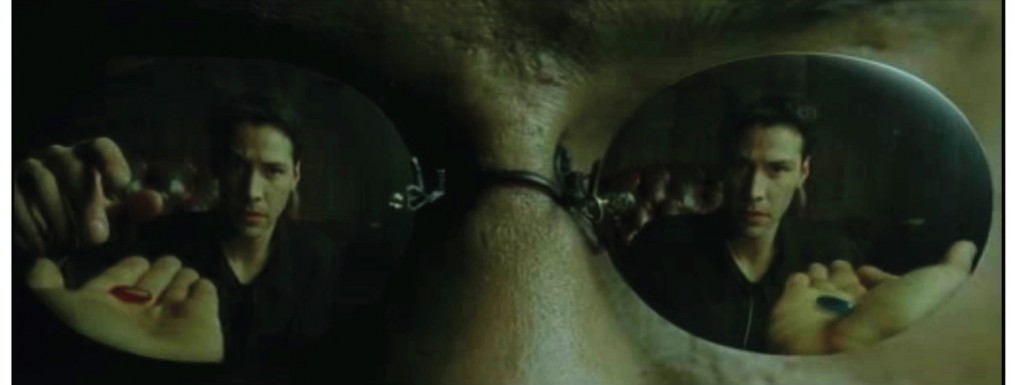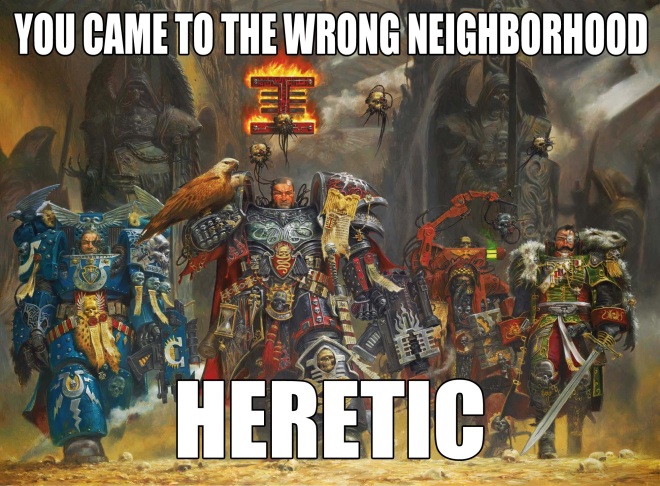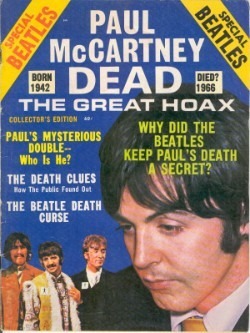Despite the fact that Thomas Campbell totally resonates with me and makes perfect sense in every respect with his words via book or youtube videos, there are those skeptics that just won’t even really hear what he is saying. I think it’s because of preconceived ideas or beliefs acquired during their time spent in their present avatar (ego). He freely shares his information and always concedes that his theory is incomplete and that it is HIS theory, and we should each develop our own intuitive TOE (theory of everything). Concerning the nature of reality, Tom came into my life at just the right time. All the digging through comparative religions, mystery teachings, Gnosticism, Buddhism, anti-mainstream literalistic dogmatic religions, mythicism and all the things I’ve researched the past couple decades seem to be summed (or included) up in Tom’s TOE, with the perfect blend of the much needed scientific and mystic knowledge to derive a solid big TOE . There’s over 230 youtube videos and he posts a new one about every week. His book My Big TOE can be read for free at google books. He is not doing this for money. He has many times said that having an OBE is not that important, so he’s not promising to teach you how to do it. He just says it’s possible for anyone with the proper intent to do so, as well as perform remote healing and remote viewing. But putting that aside and just absorbing his Big TOE is quite amazing. He obviously will have his enemies and debunkers. To me they are the ones that are closed minded and not giving him a fair hearing. They listen to one video and shut him down when their arguments against him are truthfully answered in another lecture. If one were to listen to many of his videos, one would realize he’s not a charlatan with a hidden agaenda. He has other scientists listening and agreeing with him. I hope you get to know him, he is making a difference. The following is from a forum I was reading where a woman asks Tom a question. (Tom never gives a short answer):
Question to Tom: “…..what in your opinion, could your work contribute to the future of Physics”
A very good and reasonable question trying to figure out: “where’s the beef”….. indeed “is there any beef?”
You know, it is difficult to assess the value of your own work objectively. To be valid, verification and general acceptance needs to come from others. To me, it seems perfectly clear though the concepts are very challenging to most who hear them for the first time – other technical people, including physicists who approach my work with open minds generally find that it is logically solid and answers fundamental questions otherwise unanswerable. I live my talk about open-minded skepticism — The skeptical part will feel satisfied and successful – standing on perfectly solid ground — only after physics (science in general) absorbs, embraces and accepts the core ideas in My Big TOE – that’s real validation. But such a major change in attitude and perspective will not come easily or quickly – it will require physicists to rethink their notions of reality from the ground up – to cast aside the beliefs with which they now paint themselves into a corner that does not contain the answer. Trying to change the mind of committed believers has historically been a very difficult thing to do – whether in metaphysics or physics. Cultural beliefs run much deeper than the intellect.
However, the good news is, physics does seem to be moving in that direction – digital physics is a concept that is growing more acceptable by the mainstream. The research describing mind-matter entanglement at prestigious universities like Princeton and Temple (backward causality, modifying random event generators, the placebo effect, anticipatory empathetic reactions, etc.) represent rock solid objective science with immaculate protocol. The fundamental failure of physics in almost 100 years to make any serious progress toward finding a TOE that unites the theories of relativity and quantum mechanics under one more-general set of principles is shouting that the fundamental assumptions of physics are incomplete. The solution to all that is both fundamental and unfathomable is at hand: My Big TOE theory, with just two unremarkable assumptions provides the critical missing ingredient in digital physics (what and where is Dr. Fredkin’s “other”), explains the mind-matter experiments with clear logical science, and unites relativity and quantum mechanics, showing them to be an approximation, a special case of a larger, more general and more complete theory. Just as the “flat earth” assumption was found to be valid for short distances, and Newtonian physics was found to be a special case approximation valid for a limited set of Macro conditions (slow speeds and medium to large sizes).
Once physics sees the logic of it and can outgrow the limiting beliefs that now constrain the traditional solution set such that it does not contain the correct answer, the effect upon our understanding and culture will be as big, if not bigger, than the round earth, Newtonian physics, and relativity and quantum mechanics all put together. (and I think it will one day happen because it is a better theory under the criteria science traditionally uses to determine the worth of a theory). An age of discovery and change will open up the minds and affect the personal lives of hundreds of millions of individuals over a decade – this is science that affects people personally – it is about the point and purpose of their existence – life and death. Science by itself would not have that large of an affect. However, My Big TOE not only delivers a breakthrough in physics but more importantly delivers an even larger breakthrough in philosophy, metaphysics, and theology. It would be hard to overestimate its potential impact on the people of this planet – scientists, philosophers, and theologians all solving their long standing intractable issues of understanding with the same set of overarching principles.
One minor example to make this point seem more real: Most who are seriously committed to religion and who attend my workshops or read the MBT trilogy, tell me that they equate the larger consciousness system with God. It’s a perfect fit for those with a broader perspective of their religion. In their minds MBT derives God – i.e., an understanding of God that explains who, what, why, and how God is – and defines their personal relationship to God with logic and science replacing belief, creed, and dogma. Can you imagine theology where open-minded skepticism replaces belief as the fundamental requirement? I have people telling me they keep MBT and their bibles together on their nightstand?! And that is just theology (the most belief laden and intractable of the four) – the other three: physics, philosophy, and metaphysics are affected no less. If this attitude were to become a widespread concept (MBT does explain theology very nicely – and the fact that it also explains physics very nicely provides vast credibility) what kind of an effect would it have on the world – that is but one potential, one simple example that could contribute to a tsunami of changing attitudes toward the nature of our reality. Do you see the potential and why I said that “It would be hard to overestimate its potential impact on the people of this planet – scientists, philosophers, and theologians all solving their long standing intractable issues of understanding with the same set of overarching principles.” The changes in physics alone would be revolutionary and that would be the smaller part.
This theory is falsifiable. There are literally dozens of experiment that can be done to verify the predicted results. This is real science, not just another wild improvable theory that sounds good if you don’t think about it too hard.
When any of this might happen, I have no idea – perhaps not in my lifetime – it all depends on how the ball bounces – who picks it up and how the knowledge spreads. Who knows, the scientists might not lead this massive cultural change (cultural, scientific, spiritual, growth spurt), instead they may be dragged along by it because they are so committed to their beliefs. Science is the de-facto religion of the West (what most people believe in as being the fundamental source of truth) and science, like religion, has a vested interest in maintaining their belief systems. However, the truth is not fragile – science will eventually, sooner or later, accept it.
I hope this is what you are looking for. In short, here is the potential impact of MBT: this theory could turn physics on its head, produce a broader, more powerful, and more generally correct scientific method (the old one becoming a special case approximation), and advance the level of understanding and productivity of science greatly. It could unify physics, metaphysics, philosophy and theology, solving most all of the outstanding fundamental problems, and all derivable from the same overarching elegantly simple principles based on two easily acceptable assumptions. And that would be the least of it. And because I know that logic, truth and science are what they are, and MBT is what it is, I think one day, when the time is right and people are ready to let go of fear and belief for a better, more productive understanding of reality and existence, all this change will happen because the truth is not fragile – eventually it will become known. Today we are on the cusp of that happening – perhaps even in our lifetime.
Tom Campbell
(here is a partial review of My Big TOE):
Scientific Basis
Tom points out that all systems of cosmology posit a mystical beginning. Even our current physics asks us to accept that the Big Bang was uncaused or that what caused it is unknown and unknowable. He uses concepts from modern physics, analogies from information theory and computing to build his Big TOE (Theory of Everything).
As a scientist, he is at pains to say that his TOE (MBT) is a model, not a fixed set of beliefs. He pretty much despises beliefs, whether materialist or religious, because they put bounds on our experience; they tend to turn into dogma and become a prison for the mind. If something happens that does not fit our beliefs, we tend to reject it, often without enquiry. This is no way to make philosophical or evolutionary progress. (Sometimes you can tell from the tone that Tom has had to suffer ridicule from materialists.) So Tom insists that we should not take his model on trust, which is by necessity a work in progress; the last thing he wants is to make a scientological-style religion out of it. Always, we should “taste the pudding”, test it and see how it measures up to our own understanding; and then develop our own version of the model.
Take meditation for example: he recommends that we should try this for two 20 minute (TM mantra) sessions a day for 3 months, whether we wish to attempt OBEs or not. If after that time, we do not notice a difference in ourselves (‘objectively’ tested by other people’s reactions to us, changed opinion of us, and our own improved ability to focus), then we should vary the technique or move on.
Metaphors
When MBT uses analogies from the world we know, these are to be understood as metaphors. Metaphors are, however, peculiarly and particularly relevant to MBT, because Reality is understood to be fractal in Nature. A fractal is a modern mathematical way of saying “As above, So Below”. The same laws and processes manifest in similar ways at different levels of reality.
Ordinarily, we are trapped in the ‘little picture’. Our Physical Matter Reality is one of many similar ‘subsets’ within a ‘superset’ Non-Physical Matter reality. The NPMR superset cannot possibly be understood in terms of one of its PMR subsets. This would be like the two-dimensional beings of E.A. Abbott’s Flatland trying to comprehend the idea of our three-dimensional world.
However, an insightful metaphor can actually help us to transcend the boundaries between realities and so get a glimpse of the ‘Big Picture’. Poets, of course, have always understood this idea.
Occasionally, MBT also mentions the term “hologram”, but this is not developed, presumably because we can’t easily find holograms in nature. It is easier to find fractal patterns and we can readily invoke fractal metaphors.
Read entire review of My Big TOE here: https://sites.google.com/site/iscatusben/review-of-my-big-t
Lots more videos here: https://www.youtube.com/results?search_query=tom+campbell










